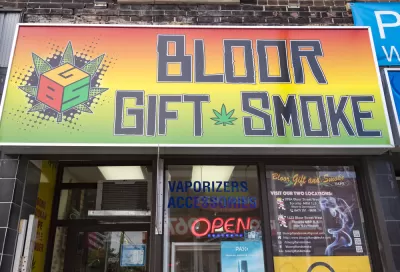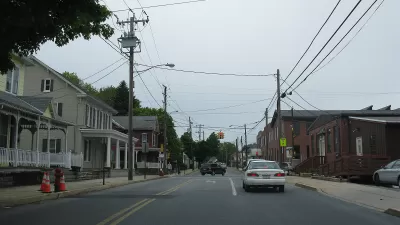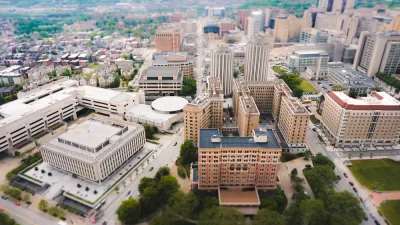The Philadelphia Planning Commission voted to recommend several changes to the zoning code, including changes to allow for the selling and growing of medicinal marijuana.

Medicinal marijuana was legalized in the Commonwealth of Pennsylvania in the Spring of 2015, licensing is set to begin in 2017, and the Philadelphia Planning Commission and its planning staffers are working diligently to see that the appropriate zoning changes are made to accommodate the medicinal marijuana market. It was made clear, however, that these proposed changes are specific only to medicinal marijuana, and should Pennsylvania ever legalize recreational use, future zoning changes would need to be made.
"The policy [Paula Brumbelow] Burns presented would allow growing marijuana in many types of industrial districts (I-1, I-2, and I-3). There are no setback requirements for marijuana growing facilities because all the work will be done inside. Burns emphasized that the state is monitoring the nascent industry so closely that even the types of fertilizers and pesticides will be regulated," writes Jake Blumgart of PlanPhilly.
Additionally, while the Commonwealth has adopted distancing requirements for the dispensaries, given that Philadelphia is far denser than many other areas of the state, it is allowing Philadelphia to create its own distancing requirements.
"The dispensaries will be allowed in most commercial zoning districts with a couple notable exceptions, including CA-1, which promotes auto-oriented uses, and CMX-1, which allows neighborhood bodegas and such. The shops must be 1,000 feet from regulated uses—like pawn shops, check cashing, strip clubs—and 500 feet from protected uses like schools, churches, and public recreation facilities."
"The commission voted unanimously to recommend the legislation."
FULL STORY: Planning Commission weighs in on medical marijuana, Logan Triangle zoning

Maui's Vacation Rental Debate Turns Ugly
Verbal attacks, misinformation campaigns and fistfights plague a high-stakes debate to convert thousands of vacation rentals into long-term housing.

Planetizen Federal Action Tracker
A weekly monitor of how Trump’s orders and actions are impacting planners and planning in America.

San Francisco Suspends Traffic Calming Amidst Record Deaths
Citing “a challenging fiscal landscape,” the city will cease the program on the heels of 42 traffic deaths, including 24 pedestrians.

Defunct Pittsburgh Power Plant to Become Residential Tower
A decommissioned steam heat plant will be redeveloped into almost 100 affordable housing units.

Trump Prompts Restructuring of Transportation Research Board in “Unprecedented Overreach”
The TRB has eliminated more than half of its committees including those focused on climate, equity, and cities.

Amtrak Rolls Out New Orleans to Alabama “Mardi Gras” Train
The new service will operate morning and evening departures between Mobile and New Orleans.
Urban Design for Planners 1: Software Tools
This six-course series explores essential urban design concepts using open source software and equips planners with the tools they need to participate fully in the urban design process.
Planning for Universal Design
Learn the tools for implementing Universal Design in planning regulations.
Heyer Gruel & Associates PA
JM Goldson LLC
Custer County Colorado
City of Camden Redevelopment Agency
City of Astoria
Transportation Research & Education Center (TREC) at Portland State University
Jefferson Parish Government
Camden Redevelopment Agency
City of Claremont





























